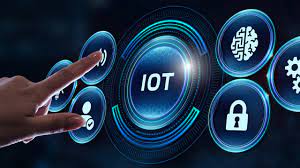The Impact of Technology on Privacy and data security

Technology has undoubtedly transformed our lives in numerous ways, but it has also raised concerns about privacy and data security. The vast amount of data that is generated and stored electronically creates a new set of risks for individuals, businesses, and governments.
One of the most significant impacts of technology on privacy is the amount of personal information that is now available online. With the widespread use of social media, online shopping, and mobile devices, individuals are sharing more information about themselves than ever before. This information can be accessed by third parties without the user’s knowledge or consent, leading to potential violations of privacy.
Furthermore, the collection and use of personal data by companies has also raised concerns about data security. The increasing amount of personal information that is stored electronically increases the risk of data breaches and cyber-attacks. These security breaches can result in identity theft, financial loss, and damage to an individual’s reputation.
The use of technology in surveillance has also raised privacy concerns. Governments and corporations can use technology to monitor individuals’ movements, communications, and activities, potentially violating their privacy rights.
To address these concerns, individuals and organizations need to take steps to protect their data and privacy. This includes using strong passwords, being cautious about sharing personal information online, and using encryption to protect sensitive data. Governments and corporations must also take steps to ensure that they are collecting and using personal data in a responsible and ethical manner and providing adequate security measures to protect against data breaches.
In conclusion, while technology has brought many benefits, it has also created new challenges for privacy and data security. It is essential that individuals and organizations take steps to protect their data and privacy and that governments and corporations act responsibly and ethically in their collection and use of personal data.
Another impact of technology on privacy and data security is the rise of artificial intelligence (AI) and machine learning. These technologies can be used to analyze large amounts of data, including personal information, to extract valuable insights. However, the use of AI and machine learning also raises concerns about the potential for biased algorithms and the misuse of personal data.
AI-powered tools can inadvertently perpetuate existing biases and discrimination, leading to further violations of privacy and human rights. Additionally, the increasing use of AI in decision-making, such as in hiring and loan approval processes, has raised concerns about the potential for discrimination and lack of transparency.
In terms of data security, AI and machine learning also pose risks. These technologies require large amounts of data to train algorithms, and if this data is not properly protected, it can be vulnerable to security breaches. Additionally, the use of AI in cybersecurity can lead to new vulnerabilities as hackers can potentially use AI to develop more sophisticated attacks.
Finally, the use of technology in remote work has also had an impact on privacy and data security. With more people working from home, there is a greater risk of data breaches and cyber attacks as employees may not have access to the same level of security measures as they would in an office setting. Additionally, the use of video conferencing tools has raised concerns about the potential for unauthorized access to meetings and data breaches.
In conclusion, the impact of technology on privacy and data security is multifaceted and constantly evolving. As technology continues to advance, it is important to remain vigilant and take proactive steps to protect personal information and data security. This includes both individual actions such as using strong passwords and being cautious about sharing personal information online, as well as corporate and governmental actions such as implementing strong security measures and ethical data collection and use practices.



